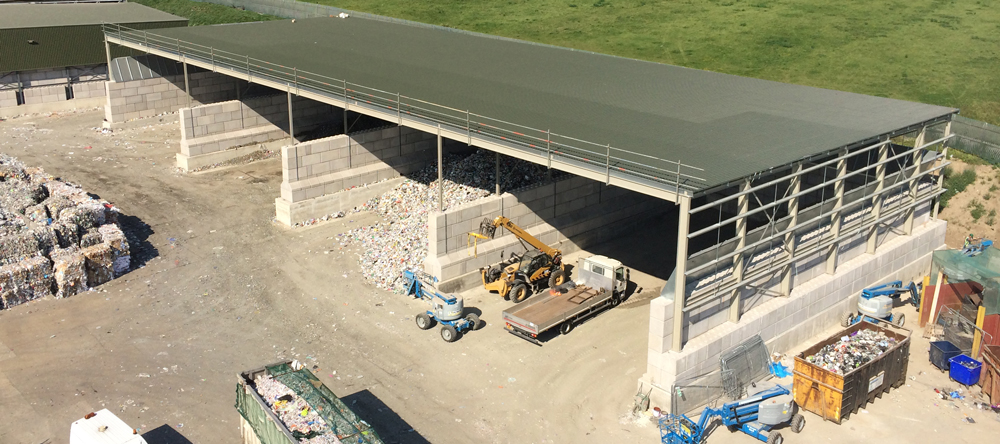Interlocking precast concrete blocks have a huge range of uses, from creating push / retaining walls suitable for storing compost, materials for recycling, salt and wood chip, through to kentledge counterweight blocks for perimeter fencing or hoarding, as well as various civil engineering projects.
Given the popularity of these blocks, there are now a number of manufactures based both in the UK and Europe, and finding the right one for you and your business in terms of quality, cost and efficiency, can often seem like a mine field.
When considering which manufacturer to use, there are some basic principles which you should bear in mind to make sure your investment doesn’t become a liability. Interlocking blocks are essentially a structural product, so you should expect your supplier to apply the same quality of standards as other building materials, such as bricks and lintels.
Here are five things to consider – which, if your supplier can confirm and prove, will give you complete piece of mind.
Are they a member of recognised and respected trade body?
By meeting the membership criteria of an organisation such the British Precast Concrete Federation (BPCF), your supplier will have had to demonstrate and provide evidence of their product quality and management systems – both of which are regularly audited. This will go a long way to help you avoid the ‘cowboys’ who unfortunately exist in every industry.
Can they prove their concrete is high strength?
Interlocking blocks are structural and to make sure they will perform safely over the next 30 years or so, they should have a compressive strength of at least 40N/mm2. If your supplier cannot prove this, avoid buying from them. The potential implications of blocks failing could be catastrophic.
What is the company’s background?
Is your supplier UK-based? Do they have a UK office or factory? Who do you go to if there is a problem? Is your precast concrete company, or are they a recycling company using the blocks as a way of getting rid of hazardous waste? You may be investing thousands in interlocking blocks which aren’t fit for purpose, so it’s important that your supplier manufactures in an ethical manner.
Is the concrete fire retardant?
If your supplier manufactures blocks with no recycled aggregates and has a minimum of 40N/mm2 compressive strength, they can probably claim that their blocks are Class A1 Fire resistant in accordance with Clause 4.3.4.4 of EN 1336. If they don’t meet these criteria, they cannot make this claim. However, if you rely on a false claim and subsequently have a fire, your insurance could be invalid.
How are the blocks moved?
Do the blocks have a fully certified cast-in lifting pin, or does your supplier insist on using their own grab? Precast concrete should be lifted using standard industry lifting systems (i.e. cast-in pins or sockets). Interlocking blocks should not be lifted using grabs, as these are designed for pallets of bricks and aren’t suitable or safe for lifting large concrete blocks. Be cautious if your supplier doesn’t cast lifting pins into their blocks, as this could mean their concrete is not strong enough to hold the pin.
Ask the right questions when choosing your supplier, and your quality interlocking blocks will provide the most robust, flexible and cost effective solution for a huge variety of projects.
Have you come across an untrustworthy supplier or a ‘concrete cowboy’? If so, please do share your experiences below, or for more advice get in touch.









